The World Press Freedom Index 2025, published by Reporters Without Borders (RSF), paints a concerning picture of the global media landscape. For the first time, RSF has described the global situation for press freedom as a “difficult situation”, signaling an alarming decline in the state of independent journalism across the world. The findings reflect how economic hardship, ownership concentration, and repressive political climates are undermining the free flow of information, even in countries traditionally known for their media independence.
India’s Position in the 2025 Index
India has seen a slight improvement in the rankings, moving up 8 places to 151st from 159th in 2024. Despite this rise, India remains in the lower tier, with a total score of 32.96. Concerns remain around press violence, misuse of sedition laws, and censorship on digital platforms. The report notes the growing challenges faced by Indian journalists, especially those covering politically sensitive issues or reporting from conflict zones like Kashmir.
Top 10 Countries with the Best Press Freedom in 2025
Countries that consistently top the index tend to have strong legal protections, pluralistic media ownership, and robust democratic traditions.
| Rank | Country | Global Score |
|---|---|---|
| 1 | Norway | 92.31 |
| 2 | Estonia | 89.46 |
| 3 | Netherlands | 88.64 |
| 4 | Sweden | 88.13 |
| 5 | Finland | 87.18 |
| 6 | Denmark | 86.93 |
| 7 | Ireland | 86.92 |
| 8 | Portugal | 84.26 |
| 9 | Switzerland | 83.98 |
| 10 | Czechia | 83.96 |
Norway remains the global leader in press freedom, supported by exceptional scores in political independence, security, and media diversity.
Bottom 10 Countries with the Worst Press Freedom in 2025
Countries at the bottom of the index are typically marked by government control, surveillance, harsh censorship laws, and frequent violence against journalists.
| Rank | Country | Global Score |
|---|---|---|
| 180 | Eritrea | 11.32 |
| 179 | North Korea | 12.64 |
| 178 | China | 14.80 |
| 177 | Syria | 15.82 |
| 176 | Iran | 16.22 |
| 175 | Afghanistan | 17.88 |
| 174 | Turkmenistan | 19.14 |
| 173 | Vietnam | 19.74 |
| 172 | Nicaragua | 22.83 |
| 171 | Russia | 24.57 |
Eritrea and North Korea rank lowest due to state-run media and complete suppression of dissent. China, despite its global influence, remains a major violator due to strict internet censorship, mass surveillance, and the imprisonment of dozens of journalists.
Mounting Economic Pressures on Media
A key challenge identified in the 2025 index is the financial instability of newsrooms. Out of 180 countries assessed, 160 face major economic obstacles affecting the sustainability of independent journalism. These financial pressures stem from declining advertising revenues, rising operational costs, and reduced public funding—particularly in democracies where independent journalism is expected to thrive.
Countries like the United States (ranked 57th) witnessed a drop of two places in part due to shrinking newsroom budgets. Argentina (87th) fell by a staggering 21 positions, and Tunisia (129th) also slid 11 ranks because of deteriorating economic conditions for the press.
Political Instability and Censorship
Political unrest and authoritarian governance have compounded the financial difficulties faced by journalists. For example, Palestine (163rd) continues to experience suppression of press freedom under extreme conflict conditions. Israel, often seen as a democratic hub in the region, fell 11 places to 112th, reflecting rising tensions and pressures on critical media.
The index shows that governments increasingly control editorial narratives, making it difficult for journalists to report independently. Editorial interference was reported in 92 of the 180 countries, and in 21 countries, including Vietnam (173rd) and Rwanda (146th), media owners regularly influence newsroom content.
Concentration of Media Ownership Threatens Diversity
Another prominent concern highlighted in the RSF report is the concentration of media ownership, which curbs media plurality and encourages self-censorship. This issue affects 46 countries, including high-ranking nations such as:
- Australia (29th)
- Canada (21st)
- Czechia (10th)
- France (25th, down 4 ranks)
In countries like Russia (171st), media ownership is entirely state-controlled, eliminating independent journalism altogether.
Legal Threats and Repressive Legislation
The global press environment is also being eroded by laws targeting foreign influence and repressive national security frameworks. These legal tools are often used to harass, surveil, or prosecute journalists, especially those investigating corruption or human rights violations.
For instance:
- Georgia (114th) slid 11 ranks due to restrictive foreign agent legislation.
- Jordan (147th) dropped 15 positions as a result of new media laws that criminalize dissent.
Such laws are designed not only to intimidate but also to isolate journalists from international collaboration and funding.

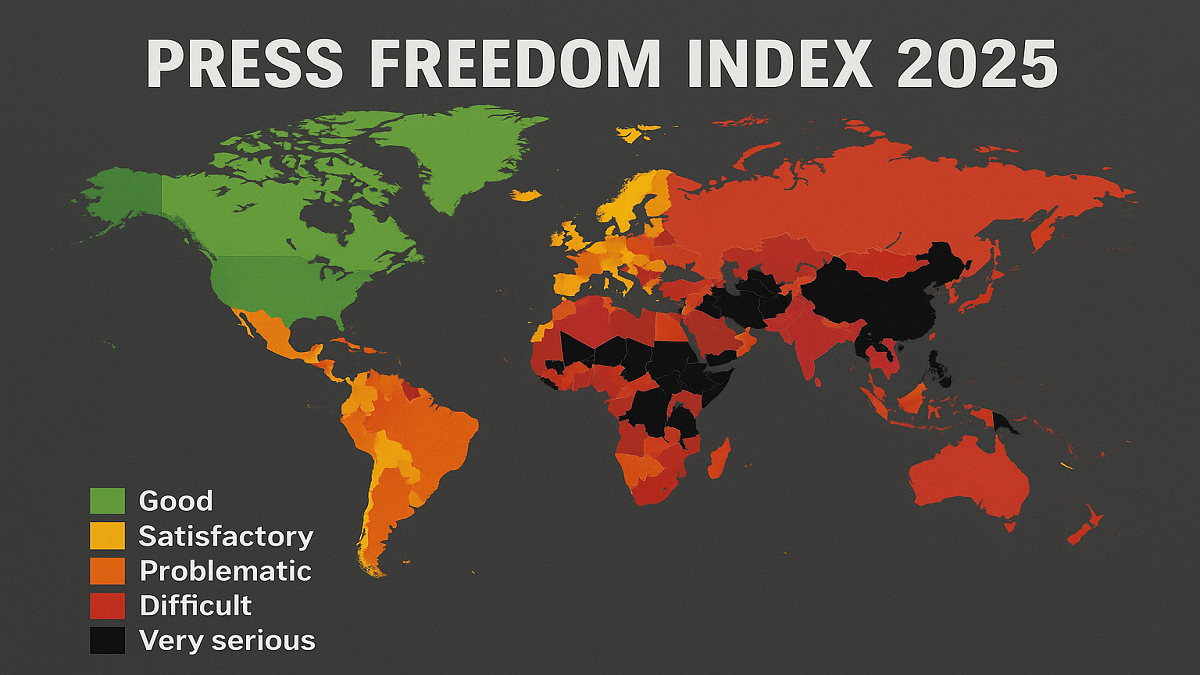
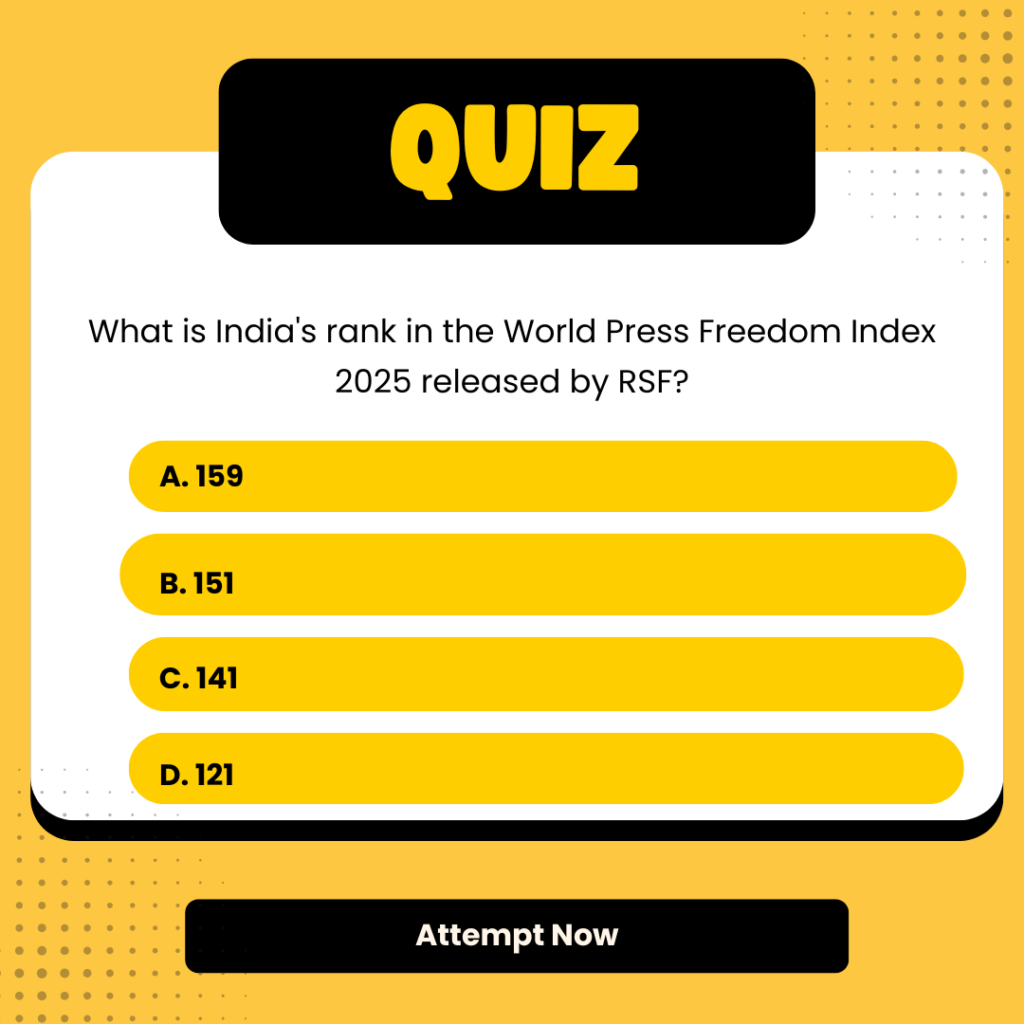
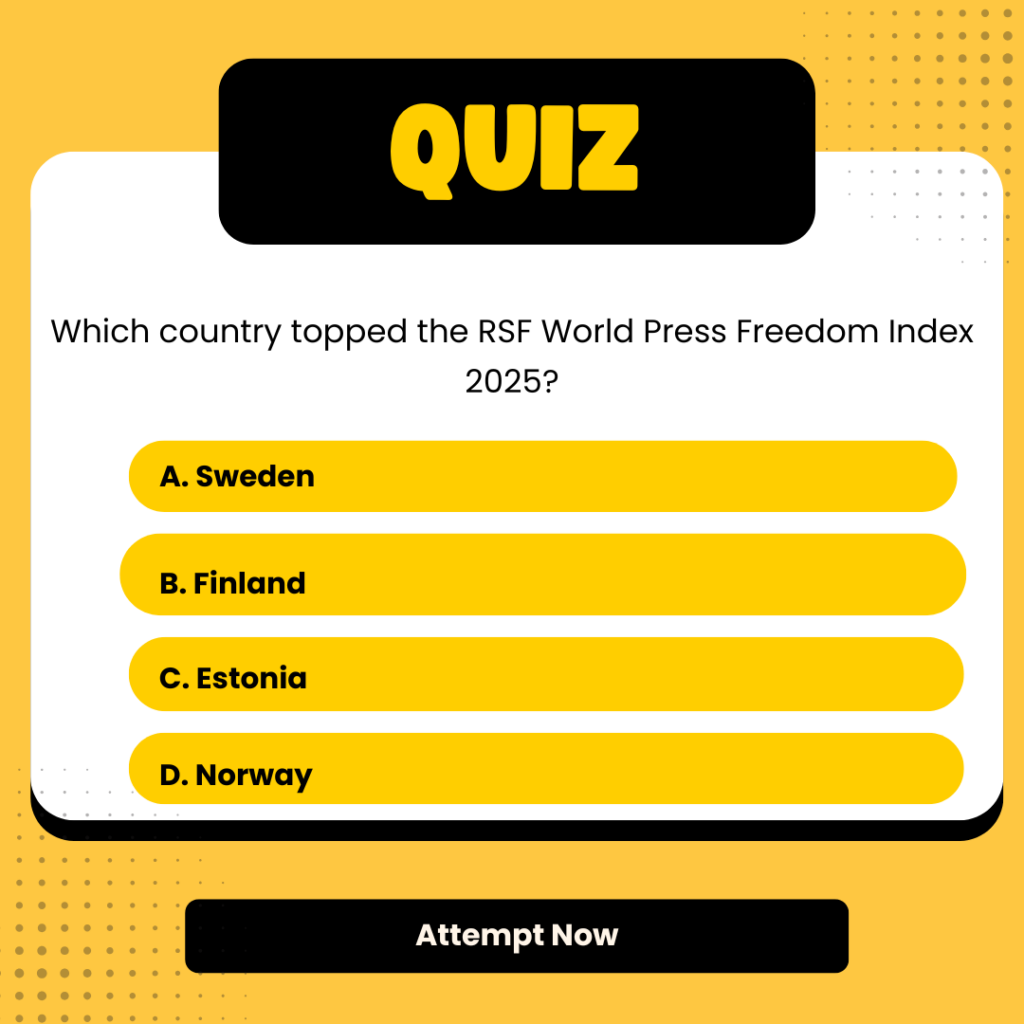







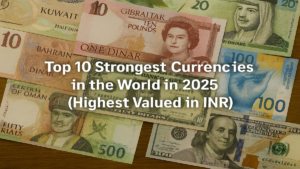 Top 10 Strongest Currencies in the World...
Top 10 Strongest Currencies in the World...
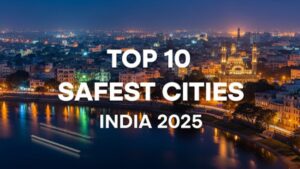 India’s Top 10 Safest Cities 2025: Check...
India’s Top 10 Safest Cities 2025: Check...
 India’s Top 10 Busiest Seaports by Cargo...
India’s Top 10 Busiest Seaports by Cargo...

